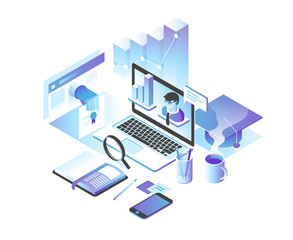Digital transformation has had a huge impact on the education sector. Six years ago ‘MOOCs’ (Massive Open Online Courses) became a buzzword with the New York Times going so far as to say 2012 was “the year of the MOOC.”
Since then others have asked if this early enthusiasm was justified. Has there been a sense of unfulfilled promise? In some ways it’s unsurprising. The claims were overhyped; MOOCs were just one manifestation of digital impact on education. However, the number of Universities using MOOCs has continued to grow — as has the number of people taking them. More significantly still is the evolution of how universities are using MOOCs: in student recruitment, blended learning, research, targeting professionals, and humanitarian causes.
FutureLearn counts a quarter of the world’s top 200 universities among its partners and what these partners continually reiterate is that the key value of MOOCs has been as a catalyst for wider digital transformation.
Skills: a major challenge for the European digital economy
On a more macro level, tertiary education enrolment rates globally are expected to rise rapidly by 14 million new students every year from now until 2030. This would require 13 new universities to be built every week, 700 each year, each serving 20,000 students if they are all going to be educated face-to-face.* That’s not going to happen. The education sector needs to think: are we going to deny these learners, or are we going to offer them the education they deserve via an online platform?
There is no choice but to innovate in scaling the supply of education. Otherwise, people desperate to learn are excluded. It’s not just in the developing world; in societies all over the world there are skills gaps in teaching, nursing, engineering, and digital skills — driven by digital services creating new jobs. Nor is online learning solely about plugging skills gaps. Online learning can help people stave off loneliness by learning a language with an online community, or help prevent dementia by keeping older learners engaged and mentally active.
What is digital transformation in business: Everything you need to know
FutureLearn has identified seven types learners taking their courses:
- Advancers who want to progress professionally;
- Explorers who want to change careers;
- Preparers who want to improve their prospects in a new career;
- Fixers wanting to understand an aspect of their personal life (their health or the health of a loved one, for example);
- Flourishers who are looking for self-help advice;
- Hobbyists wanting to support their existing personal projects;
- Vitalisers, who learn for the love of learning.
Serving these people has got to be the greatest opportunity for Universities to rethink their role as the hub of the knowledge economy — and it’s through the provision of online learning that they can accomplish this.
In education, digital has been transformative. Learners now have access to vast stores of learning content and courses — many of them free — from leading universities around the world. And they have the flexibility to do this learning wherever and whenever they want. There is access for professional and older learners, and people from countries all over the world. Learning online is fun, enjoyable, interactive, immersive, connected to the web, and data driven. Qualifications are built around the learner. Online learning is also socially interactive; allowing learners to interact with one another all over the world.
From upskilling to outsourcing: How CTOs can introduce blockchain to the enterprise
Digital transformation has now reached a point where FutureLearn is able to offer fully online degrees and work with employers to provide bespoke training to meet company-specific needs. The company recently commissioned independent research which, based on the responses of 600 employers across the US, Australia and the UK, found that: 73% of employers consider online learning when promoting staff; 73% of employers consider online learning when hiring staff; and that 80% of employers will pay for their staff to take some form of online learning.
In the last two years alone, FutureLearn has seen 803,000 learners take mental health courses; 113,000 on cancer courses; 71,000 on dementia courses; and 1 million learners on teaching courses. It reached healthcare workers in West Africa Ebola treatment camps (40% of whom took the Ebola in Context: Understanding Transmission, Response and Controloneli minating trachoma; and delivered basic skills to workers in Syrian refugee camps. course on a single phone); supported Bangladeshi doctors working in refugee camps with a course on eliminating trachoma; and delivered basic skills to workers in Syrian refugee camps.
FutureLearn is honouring its mission to transform access to education on a global scale. The company has now reached over 8.5 million learners since its launch in 2012.
Written by By Nigel Smith, MD of Courses and Learning at FutureLearn










